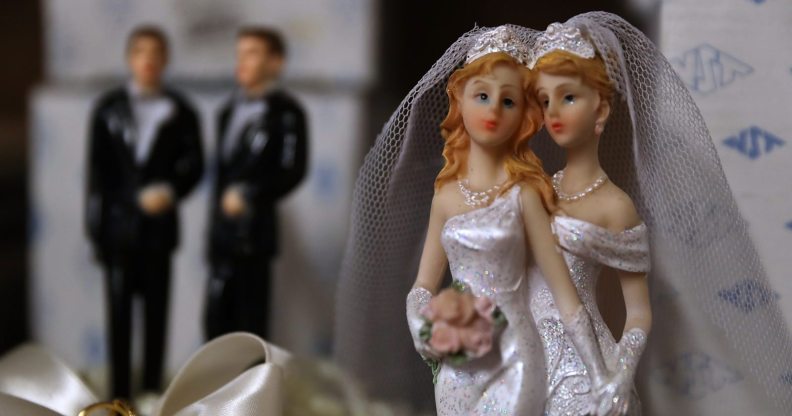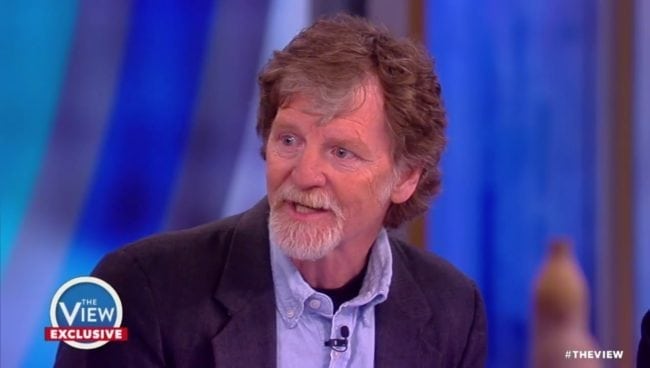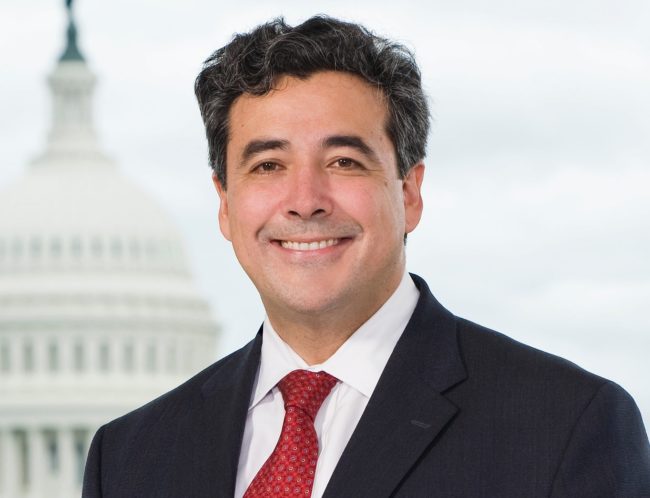Colorado Republicans vote to strip funding from civil rights body for enforcing LGBT rights

(Justin Sullivan/Getty Images)
Republicans in Colorado have voted to defund the Colorado Civil Rights Commission, the bipartisan board responsible for investigating and adjudicating complaints of discrimination against minorities.
The action was taken against the body, which is responsible for enforcing anti-discrimination protections based on race, sex, national origin, ancestry, disability, religion, color or marital status
The board is nationally known for its role in the pending U.S. Supreme Court case Masterpiece Cakeshop v. Colorado Civil Rights Commission, an ongoing legal case relating to a bakery that faced action for discriminating against a same-sex couple.
But Republicans on the state’s Joint Budget Committee voted last week to withhold funding from the civil rights body for the 2018-2019 fiscal year.
If their plan goes ahead, funding for the body could dry up in just a few months – potentially leaving minorities without recourse in the state when they face unlawful discrimination.

The Democratic National Committee’s LGBTQ Media Director Lucas Acosta said in a statement: “Colorado Republicans’ vote to defund the Colorado Civil Rights Commission is shameful.
“Every American deserves a government that fights for their basic human rights, and Colorado Republicans’ actions today send a clear message that they’re interested in creating a government that does just the opposite.
“Fighting for civil rights shouldn’t be a partisan issue, but it’s become more and more clear that Republicans, in Colorado and Washington, are more interested in taking us backwards than fighting to improve the lives of every American.”
JoDee Winterhof, the Human Rights Campaign’s Senior Vice President for Policy and Political Affairs, added: “By voting to withhold funding from the very division responsible for upholding the state’s civil rights laws, Colorado’s GOP lawmakers are stoking the flames of discrimination against LGBTQ people, people of color, people of faith, people with disabilities and women.
“This reckless action will not go unnoticed by the fair-minded majority of Colorado voters who will hold them accountable. Republican lawmakers on the committee must immediately take action to restore funding to the Colorado Civil Rights Division.”
Daniel Ramos, Executive Director of pro-LGBT group One Colorado added: “One Colorado is proud to be on the ground leading a broad coalition of civil rights organizations, business and faith leaders, and elected officials here in our state to stand up for the civil rights of Coloradans from all walks of life.
“All Coloradans have the right to be treated fairly and equally, including LGBTQ Coloradans, and the CCRD reaffirms this fundamentally American idea. A vote to ensure this office continues is a vote to support protecting our fellow Coloradans’ civil rights.”
The US Supreme Court recently heard oral arguments in the case of a religious baker, represented by an evangelical law firm seeking to undermine state-level LGBT discrimination protections.
Jack Phillips of Colorado’s Masterpiece Cakeshop launched a legal challenge to Colorado’s anti-discrimination laws after refusing to serve gay couple David Mullins and Charlie Craig.

The baker refused to make a cake for the couple after he found out they were celebrating their wedding
Mr Phillips claims that Jesus Christ would discriminate against gay people, and continues to insist his religion requires discrimination against gay people.
LGBT campaigners say that if the court sides with Mr Phillips, the case threatens to blow a hole in decades of civil rights laws and anti-discrimination protections across the US.
As the Supreme Court heard the case, Solicitor General of the United States Noel Francisco delivered oral arguments as part of the baker’s defence on behalf of the Trump administration.
Appearing before the court, Francisco likened the gay wedding to the KKK.

He said: “This case raises an important issue for a small group of individuals; namely, whether the state may compel business owners, including professional artists, to engage in speech in connection with an expressive event like a marriage celebration to which they’re deeply opposed.”
He added: “Is the thing that’s being regulated something we call protected speech? I think the problem for my friends on the other side is that they think the question doesn’t even matter. So they would compel an African American sculptor to sculpt a cross for a Klan service.”
The Trump official claimed it was “a narrow category of services that do cross the threshold into protected speech”.
Incredibly, Francisco appeared to answer in the affirmative when Justice Kennedy asked if the baker could “put a sign in his window [saying] ‘we do not bake cakes for gay weddings”.
Francisco said: “Your Honor, I think that he could say he does not make custom-made wedding cakes for gay weddings, but most cakes would not cross that threshold.”
Asked if the argument was an “affront to the gay community”, Francisco added: “I agree that there are dignity interests at stake here, and I would not minimize the dignity interests to [the gay couple] one bit, but there are dignity interests on the other side here too.”

The Supreme Court justices
Justice Sotomayor latched on to the claim.
She said: “We live in a society with competing beliefs, and all of our cases have always said where LGBT people have been humiliated, disrespected, treated uncivilly.
“The briefs are filled with situations that the gay couple who was left on the side of the highway on a rainy night, people who have been denied medical treatment or whose children have been denied medical treatment because the doctor didn’t believe in same-sex parenthood, et cetera.
“We’ve always said in our public accommodations law we can’t change your private beliefs, we can’t compel you to like these people, we can’t compel you to bring them into your home, but if you want to be a part of our community, of our civic community, there’s certain behaviour, conduct you can’t engage in.
“And that includes not selling products that you sell to everyone else to people simply because of their either race, religion, national origin, gender, and in this case sexual orientation.
“So we can’t legislate civility and rudeness, but we can and have permitted it as a compelling state interest legislating behaviour.”
The Trump official responded: “We don’t think you can force a speaker to join the parade.
“Because when you force a speaker to both engage in speech and contribute that speech to an expressive event that they disagree with, you fundamentally transform the nature of their message from one that they want to say to one that they don’t want to say.”
Elsewhere, Supreme Court Justice Kagan asked whether any extension of rights for “artistic expression” could be used more widely to license discrimination.
She asked: “How do you draw a line? How do you decide, oh, of course, the chef and the baker are on one side, and the florist is on that side, the chef, the baker, the florist, versus the hairstylist or the makeup artist?
“I mean, where would you put a tailor, a tailor who makes a wonderful suit of clothes? Where does that come in? The baker is engaged in speech, but the chef is not engaged in speech?”
Justice Kagan also asked whether the hypothetical exemptions from anti-discrimination laws would apply to people who object to interracial or interreligious marriage on religious grounds.
The justices also asked whether the arguments for discrimination against gay couples would also “trump public accommodation laws against
discrimination protecting customers [based on] race”
Despite the rigorous grilling from the liberal justices, experts say that the court’s conservative majority appeared sympathetic to the baker’s case, raising concerns from LGBT rights activists.
A ruling is due later this year.

